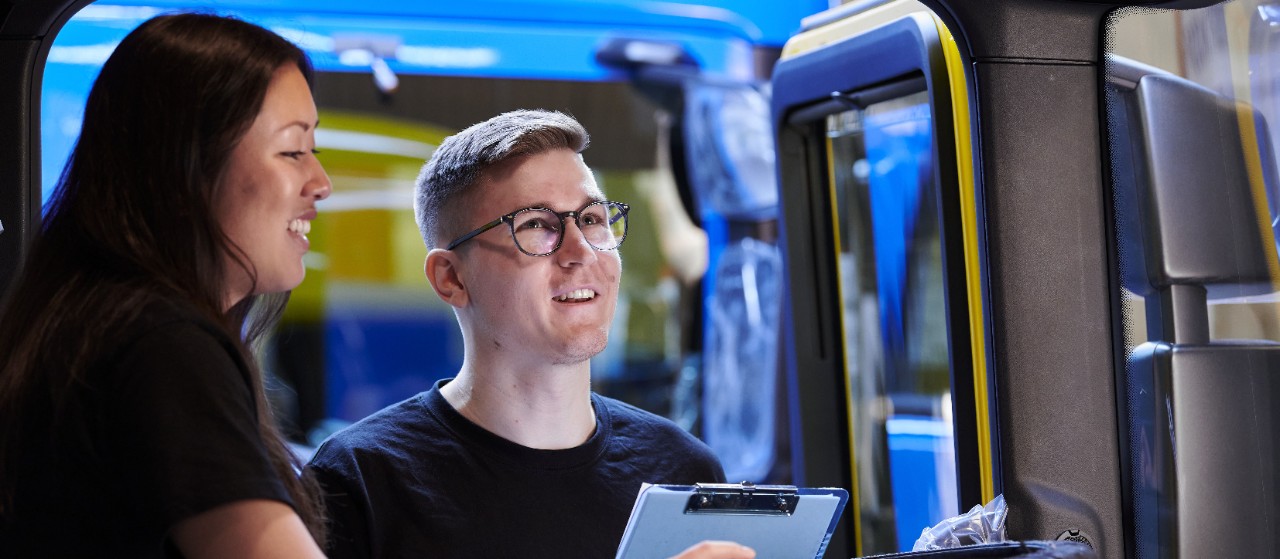
People sustainability
A sustainable transport system must serve the needs of people and society as well as the environment. These needs are interconnected and inseparable from each other.
Commited to adress the social impacts
A sustainable transport system keeps goods and people moving efficiently, without jeopardising human health, safety, or the environment, and that is available to all.
We recognise that driving the shift towards a sustainable transport system involves managing our impacts on people and delivering social value across our value chain. Upholding human rights in line with international standards is critical for maintaining our licence to operate and supporting a just transition within our industry and ecosystem.
We have a range of systems, policies and processes in place to identify and manage social risks and opportunities in our operations and value chain. Our sustainability roadmap prioritises the following three key areas:
Our workforce
Our business depends on healthy, engaged and motivated employees. We are committed to creating a safe, inclusive, and supportive workplace where everyone has the opportunity to grow. Through talent development initiatives and Skill Capture, we empower employees to reach their potential while equipping our organisation for future challenges. By fostering innovation and creativity, we ensure that new ideas and diverse perspectives drive our success.
Our supply chain
We rely on a large supply chain with more than 1,000 direct and 10,000 indirect suppliers. Some of these suppliers operate or have supply chains in locations or are engaged in types of work with heightened risk of human rights abuses and other social harms. These risks are particularly prevalent in the extraction of certain raw materials such as lithium, nickel, cobalt and natural graphite. We monitor and mitigate these risks through close engagement with our suppliers.
Road safety
Road safety is a key priority at Scania. Large vehicles are overrepresented in fatal accidents, and with this comes significant responsibility. Promoting road safety goes beyond reducing fatalities—it’s about protecting the fundamental rights to life, health, and well-being. A sustainable transport system is safe for everyone, which requires acknowledging that the risk of accidents is not equally shared.
